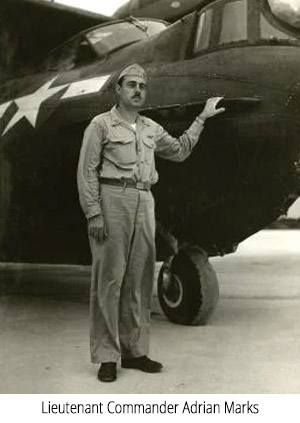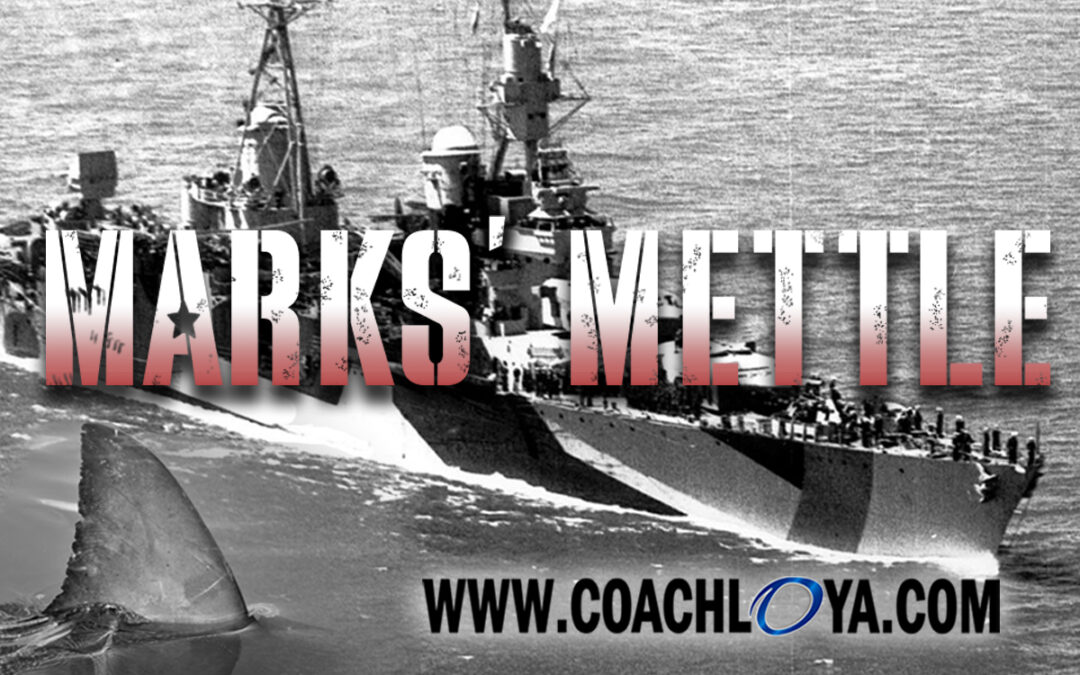Unless you’ve been marooned on a deserted island, you’re undoubtedly aware that this summer marks the fiftieth anniversary of the original summer blockbuster, Steven Spielberg’s Jaws.
Jaws has been everywhere this summer. The original cast and crew have been doing interviews. Theaters and streaming platforms have been showing special anniversary editions. I even mentioned the film in Teammate Tuesdays back in May (Summer Blockbusters).
This week marks another Jaws-related anniversary: The sinking of the USS Indianapolis.
During what’s now become not only the most famous scene in Jaws, but one of cinema’s most iconic monologues, Quint (Robert Shaw) recounts being stranded in shark-infested waters after a Japanese submarine sank the USS Indianapolis during World War II.
“Eleven hundred men went in the water. Three hundred and sixteen men came out. The sharks took the rest.”
Quint’s monologue is inspired by a true story—one highlighted by the mettle (i.e., courage, fortitude, resolve, conviction, and spirit) of a good teammate named Adrian Marks.
Shortly after midnight on July 30, 1945, torpedoes fired from a Japanese submarine struck the starboard side of the USS Indianapolis. The ship was en route to the Philippines from Guam, having hours earlier completed the top-secret mission of delivering critical components of “Little Boy,” the atomic bomb that would be dropped on Hiroshima the following week.
The USS Indianapolis sank 12 minutes after being struck. Roughly 300 men went down with the ship, the rest were sent adrift in the dark Pacific Ocean.
Due to classified orders, communication errors, and misinterpreted Naval directives, distress signals were overlooked, and the ship was not reported missing. After four harrowing days in the water, a US Navy aircraft spotted the survivors by chance while on routine patrol.
 That aircraft radioed command, who dispatched air and surface rescuers to the sight. The first to arrive was an amphibious plane, captained by Adrian Marks. Upon arrival, Marks’ crew attempted to drop lifeboats to the survivors but were unsuccessful in their efforts.
That aircraft radioed command, who dispatched air and surface rescuers to the sight. The first to arrive was an amphibious plane, captained by Adrian Marks. Upon arrival, Marks’ crew attempted to drop lifeboats to the survivors but were unsuccessful in their efforts.
Seeing the abundance of sharks swimming among the survivors, Marks made the courageous decision to disobey orders to not land in the open ocean. He brought his plane to rest among the twelve-foot swells and began pulling survivors into his aircraft.
When the plane’s interior filled, Marks shut off the engines and used parachute chords to lash survivors to the bobbing wings. The decision saved lives but rendered the plane unflyable.
A destroyer, the USS Cecil J. Doyle, arrived later that night. Survivors were hauled onto the destroyer, followed by Marks and his crewmen. The next morning, the USS Doyle sank Marks’ damaged plane.
Marks’ mettle is linked to another good teammate quality—adaptability.
Good teammates can adapt principles to circumstances. They are willing to defy, deviate, and disregard when the situation necessitates. If doing what’s best for their team calls for those responses, then that’s what they do.
Consistency is a defining characteristic of good teammates. But consistency should never be confused with rigidity. A good teammate’s consistency lies in their always choosing what is best for their team.
Being inflexible and unwilling to adapt principles to specific circumstances can set your team up for failure. Conversely, being willing to adapt principles to specific circumstances can set your team up for success.
Twelve days after Marks’ heroics, World War II ended with Japan’s surrender. Admiral Chester Nimitz later awarded Marks the prestigious Air Medal. Marks opened a law practice after the war in his hometown of Frankfort, Indiana, a mere 40 miles—ironically—from Indianapolis.
The story of the USS Indianapolis is filled with inspiring good teammate anecdotes. Googling it is a rabbit hole well worth going down. Good teammates like Adrian Marks and the many others connected to the story deserve to be remembered.
As always…Good teammates care. Good teammates share. Good teammates listen. Go be a good teammate.





